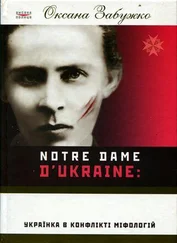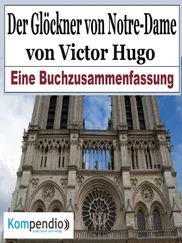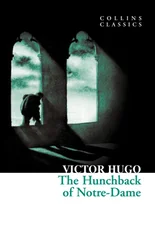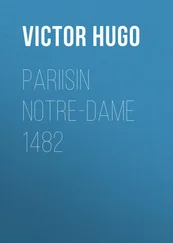Not suspecting the storm she had awoken, the girl stood before him, sipping her water, which sparkled with tiny bubbles. With her head tossed back and her shirt unbuttoned at the collar, her raised hand stretched the worn fabric in such a way as to leave no doubt—there was no trace of a brassiere underneath.
Eugène-Olivier had traveled several times to regions where Muslims still permitted women in the streets with the upper part of their face uncovered. He would remember the eyes of these Muslim women forever—with their eyelashes lengthened with mascara or simply glued on, edged with pencil, with metallic shadow on their eyelids, or eyeshadow that glittered, or eyeshadow that changed color. You could argue with those eyes the women looked less decent than if they had been completely nude. Whereas this girl with her bare neck and arms, with small breasts swelling against a shirt that had become too tight for them shone from within with chastity.
She took another sip. Eugène-Olivier would really have liked to have had some water from her bottle, but not because of thirst. She noticed his intense gaze.
“Hey, what’s the matter, are my ears green?” The empty bottle went into the wooden trash receptacle standing on the asphalt. “Let’s go!”
The girl approached the garage. Behind the open door there was an old Citroën that didn’t take up a lot of room. She began to move a toolbox standing beside the wall.
Eugène-Olivier also started pushing the box. It was so heavy, you would have thought the tools in it were made of lead.
“I’m Eugène-Olivier,” he said, continuing to push.
“I’m Jeanne.”
Eugène-Olivier had never met a girl named Jeanne before in his life. His father once told him that by the end of the twentieth century, this name, once so popular, had almost disappeared. City dwellers had begun to consider it too peasant-like and vulgar. Then people in the villages tried to show the city dwellers that they, too, were sophisticated and could name their daughters Renée and Leonie.
“It was already clear then that France would fare badly without girls named Jeanne,” his father had told him. “If we had had a daughter, that’s what we would have named her. But unfortunately, you don’t have a sister.”
“What a rare name you have,” said Eugène-Olivier.
They looked at each other and smiled, their heads almost touching over the rough boards. The box suddenly moved, as if it were on rails—which in fact, it was.
There was a trap door underneath, revealing stairs that led down. They looked nothing like the ordinary wooden stairs in Paris houses. Made of lightweight metal, they had a certain elegance.
At the bottom of the steps was a metal cubicle lit by the glare of a fluorescent lamp. Two panels on one wall parted like the doors of an elevator. Beyond them a small passage appeared, and another sliding door, leading to a long, winding corridor.
The corridor was not dank like a sewer depot or a rat-infested subway tunnel, or even like the passageway of a crypt from ancient times (there were a lot of those under Paris). The floor had tiles the color of sour cherries, without a single scratch or nick. The flat walls might have been smooth concrete, but were painted a glossy gray. A row of dimly glowing bulbs on the ceiling lighted the way down the corridor.
“You’ve never been in a place like this?” There was a hint of boastfulness in Jeanne’s voice—as if to suggest that although she didn’t personally build these corridors, she had ruled them for at least two or three generations. “Luxurious, isn’t it?”
“Almost too luxurious.” Eugène-Olivier could not hide his enthusiasm. “What is this place?”
“It’s a bomb shelter. It’s very old, almost a hundred years.”
“From World War II? The time of Hitler?” Eugène-Olivier was pleased to display a little knowledge of history once again.
“Oh, no, about ten years later.”
“What kind of bombs were they hiding from?” Apparently he should not have rushed to demonstrate his knowledge of history.
“There were no bombs.” Jeanne was walking in front, and her walk seemed to be that of a girl younger than herself. “They were simply very afraid of nuclear war. So just in case, they dug a lot of places like this one. They’ve come in very handy for us. This one had entrances in several different locations and it could hold about a dozen families from the neighborhood.”
The corridor was interrupted by yet another metal door. It was oval and also discreetly attractive. In front of the door there was a stool, on which was a white plastic bowl filled with water.
“What’s the water for?”
“Maybe it’s used to breed fish?” She was obviously kidding. “All right, let’s join the others. There’s no point in staying here by ourselves.”
Eugène-Olivier wouldn’t have minded if they stayed by themselves, but there was work to be done.
The doors were sound-proof. As soon as they opened, one could hear voices.
In the enormous room, people filled two rows of tables with benches. Some were reading books. Others talked in small groups, speaking in low voices. There was a tall, old man with gray hair tied back in a ponytail like a lord from the eighteenth century. He welcomed them with a nod. The crowd was mostly old, but to Eugène-Olivier’s surprise, there were also children among them, even babies less than a year old. The children seemed unusually well behaved—very different from the Muslim children in the streets. A little boy of about three sat on the floor with great dignity, playing with a simple toy that looked like a turquoise necklace, with beads of varying size.
The women’s clothing was an obvious rejection of Muslim dress—they did not even wear turtlenecks. Older women wore blouses with collars; the young women had denim jackets and men’s T-shirts.
On the other side of the room there was another door, quite small, which now opened. A man entered. When he saw him, Eugène-Olivier concluded that all this must be a part of a dream, along with Jeanne and the strange, elegant underground of the war that never was.
The man who entered was a priest—but not the sort of priest Eugène-Olivier had seen in photographs of the last days of Notre Dame Cathedral. He looked as if he had just stepped out of a time machine from centuries ago.
His bell-bottomed black cassock was closed by a row of cloth-covered buttons that started at his neck and went down to the floor. There were thirty-three of those buttons, but Eugène-Olivier would not find that out—or why—until much later. The tall, light-haired priest was young, although his stiff expression made him seem much older. The room fell silent as he entered.
“Today there will be no Mass,” he said in a melodious, husky voice. “Our wine provider has fallen into the hands of the Muslims. May the Lord grant repose to his soul.”
“Poor Monsieur Simoulin!” said an old woman in a purple blouse that set off her gray hair. Her voice was measured, but Eugène-Olivier noticed that her thin body was trembling. “As a widower, he neglected all caution. No, not neglected it, but threw it away like a thing no longer needed.”
“I spoke with him by telephone two days ago,” said the long-haired old man softly. “He was aware that it would have been better not to work for a week or two, but he really wanted today’s feast to be commemorated. He knew that the last bottle of wine had been opened and the last cruet used during the last Mass.
“Today the vestments are red, because the Apostle John before the Latin Gate is willing to accept the martyr’s wreath—even though martyrdom does not come to him. But it is appropriate that the vestments are red, because now another martyr will be remembered on this day.”
Читать дальше
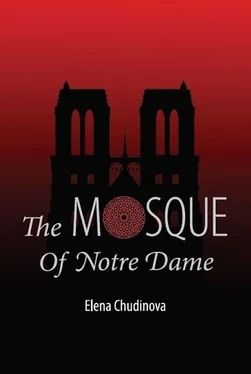

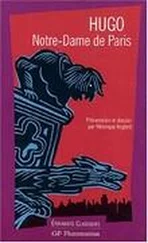
![Виктор Гюго - Собор Парижской Богоматери [Notre-Dame de Paris]](/books/30985/viktor-gyugo-sobor-parizhskoj-bogomateri-notre-thumb.webp)

